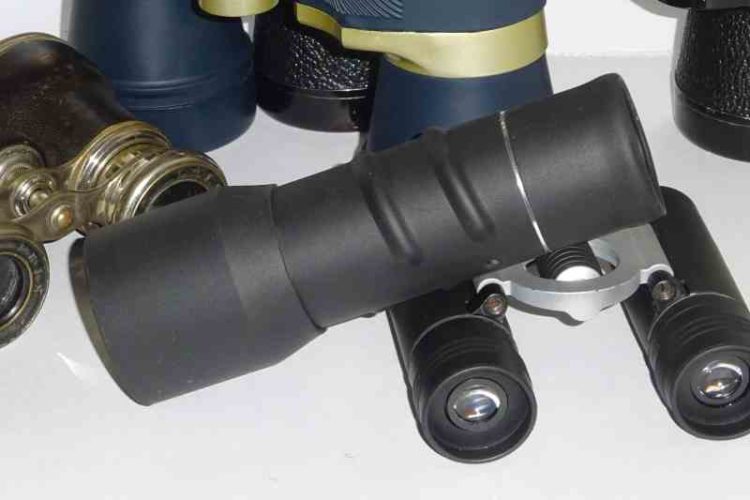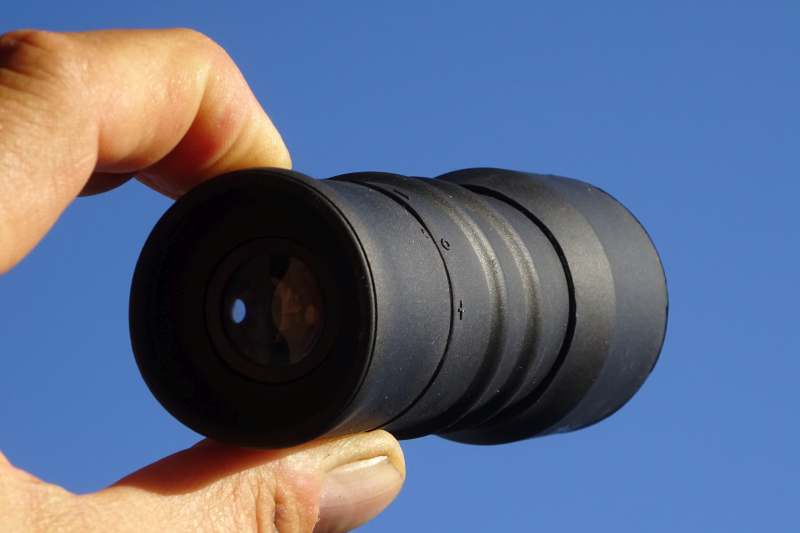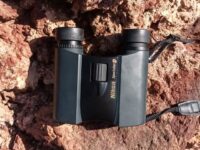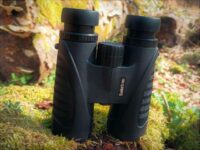Going hiking, backpacking, canoeing or just taking your dog for a walk in the woods. When out in nature there may always be interesting stuff to observe. A good pair of small binoculars or a monocular can always be useful to take a closer look at some birds or other wildlife or just to scout interesting stuff in the terrain.
Monoculars or binoculars in compact pocket sizes are perfect for occasional use as they fit in any pocket or daypack without adding too much weight to it. If you regularly spend time outdoors you will quickly get used to the benefits of having one of those small optical instruments at hand.
Monocular vs Binoculars – What is better? What is the Difference?
What is a Monocular
A Monocular is simply an optical instrument designed to look at a distant object with a single eye only.
A telescope is the best-known example of a monocular. But compared to a telescope, which may be as large as construction limits permit, a monocular is usually very small and compact so it can fit in any pocket.
The word monocular is derived from the Greek “monos” which means “one” and the word “oculus” which means “eye”.
Monoculars come in all sizes and price ranges. Often they find specialized applications as rangefinders for hunters or golfers, or in the military.
What are Binoculars
Binoculars are so common everybody has probably used one or at least seen one.
Binoculars consist of two monoculars or two small telescopes that are connected to each other to allow simultaneous viewing by both eyes. They are often light and portable but are also available in large models that require a tripod to aid observation.
The name comes from the Greek again where”bi” means “two” and “Oculus” is the “eye” as we learned above. Binoculars are the most common instrument used to observe distant objects.
Good binoculars are used by anyone who engages in outdoor activities, search, and rescue, police, military, hikers, mountaineers, birdwatching enthusiasts, and scientists the list can go on and on. There are many different types so that everyone can choose the best one for their interests.
Advantages of Monoculars
Monoculars have a number of pros and cons. Amongst the many advantages is certainly the fact that they can be small, compact, and lightweight. Since they are practically only “half” a regular pair of binoculars, but providing the same magnification levels as regular binoculars, monoculars cost less.
A drawback of monoculars is the lack of relaxed vision, which can lead to rapid eye fatigue. Their construction makes them also prone to irritating sidelight effects and the field of view is not as wide.
Monoculars are best used in situations where one does not need to continuously observe distant moving objects, but rather only briefly views a distant object, like in taking aim when hunting, measuring distance when playing golf, or taking a quick look at something.
Advantages of Binoculars
Most binoculars are very easy to use, just point at an object and dial the focus and you can observe game, birds or any other interesting object.
Since both eyes are used, as compared to the one-eyed observation with a monocular, binoculars have a much broader field of vision and project a spatial 3-dimensional image. Binoculars will be much more comfortable, the eyes will not suffer eye fatigue and users don’t get eye fatigue-related headaches even when looking through the instrument all day.
Binoculars are preferably used for nature observation, where one wants to view objects for extended periods of time. As an experienced outdoorsman or nature observer, you will notice quickly that a good pair of binoculars is superior to a monocular and provides better viewing results.
Astronomers like using binoculars for scanning the sky in its whole to help quickly find a particular object.

Monocular vs. Binoculars – What should I buy?
The choice over monocular vs binoculars may be difficult for some users. Some people prefer to have both instruments. In that case, one would be well equipped for almost any scenario.
But whether buying binoculars or a monocular depends on its intended use as we discussed above. What may be ideal for one person may be highly inappropriate for the other? Think about your uses and the intended purpose and carefully weigh the pros and cons.
In terms of weight, dimensions, and even cost, a good monocular may have pros on its side. After all, you are just carrying half a pair of binoculars.
Viewing comfort is a different story. Observing with just one eye through a monocular can be very tiring for the eye and may sooner or later cause eye fatigue or even a headache. A monocular is great for a quick brief view to assess a situation but only partially suitable for long-term observation.
For detailed and extended observations, a good pair of binoculars has a clear advantage. Both eyes are equally used, it is not as tiring, the field of view is larger, twilight performance is better, and the contrasts and image depth is more clear.



